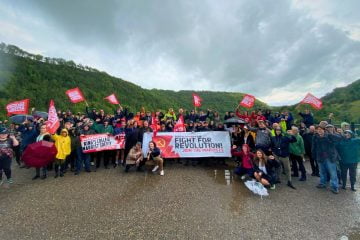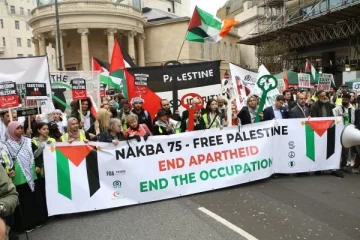Series 2 of Britain’s Forgotten Men has been aired recently on BBC3 and is a rare account of the harsh realities of the lives of working-class people around the Manchester area.
It’s unusual for the BBC to focus a documentary on working-class communities and their plight as a result of the last ten years of economic crisis and austerity. A disproportionate amount of BBC programming often has no connection to the lives of ordinary working-class people. Programmes such as Homes under the Hammer, coverage of the royal wedding, or three upper-middle-class racists driving around in sports cars that cost more than a terraced house in Leeds, spring to mind.
However, this new series focuses on the real lives of people who have fallen into poverty and have no way of escaping. Crime, drugs, and football thuggery blight many of the lives of these people and have begun to define their community in many respects. Hope for improvements to their lives such as decent jobs, education, and housing looks like it will never materialise.
The class-consciousness of some of the people on the programme is noteworthy. They can see that their situation is not caused by anything other than because they’re working class. They’re aware that the loss of industry, especially in the north of England, has torn apart their communities and denied them the chance of a decent livelihood. And at the same time they can see a small layer of people in the UK getting rich, while they have been left behind.
The documentary explains that by 2020 income inequality will reach a record high and the poorest households could be £2,600 a year worse off than they are now. The documentary also states that almost half of all children living in single-parent families live in poverty.
Another aspect that came out of the programme was the ways in which the people in these communities were trying to improve their lives. One man, who had a child and a partner, became a boxer to provide for his family. Whilst he succeeded, he could only do so by putting himself at great risk to his health and future. So desperate was this man’s situation that fighting for money became the only option, even though the chances of a stable long-term career in this field are less than slim.
Even more eye-opening was the story of a young boy, under the age of 18, who had applied to join the army. He had passed all the fitness and background tests but failed by just a couple of points on his literacy tests. This boy, with no qualifications and no GCSEs, saw the army as his only chance of a better life under the present system. In other words, in Britain today, some boys are left with no option other than to offer to sacrifice their lives in the imperialist interests of the ruling class. It’s not surprising that the army targets boys from working class communities, as England ranks lowest in the developed world for literacy and second lowest for numeracy.
This documentary is very revealing about the impact of ten years of economic crisis and Tory policies on people in Britain today. I would recommend as many people watch it as possible. But don’t just watch it – think about what we can do to fight against the unfairness and injustice being inflicted on the people whose lives it follows.
The answer for people in these communities is not to join the army, to sell drugs, to become a rapper, or to find Jesus. This won’t solve anything in the long term. The solution is united, persistent, and militant class struggle. We need to wage a war on that class of people who is responsible for the situation that working-class people and communities now find themselves in.
This united action and militant struggle needs leadership. It’s no surprise that communities like the ones in this documentary face the situation they do now, as past Labour leaders have forgotten or ignored the working class. They have abandoned them to the free market, which has ripped their communities apart and sold them off.
Now is the time for the Labour leadership to take notice and to organise these people, so that together we can fight for our jobs, our communities, and a better life for all of us.
by Dillon Lauder, London Marxists



